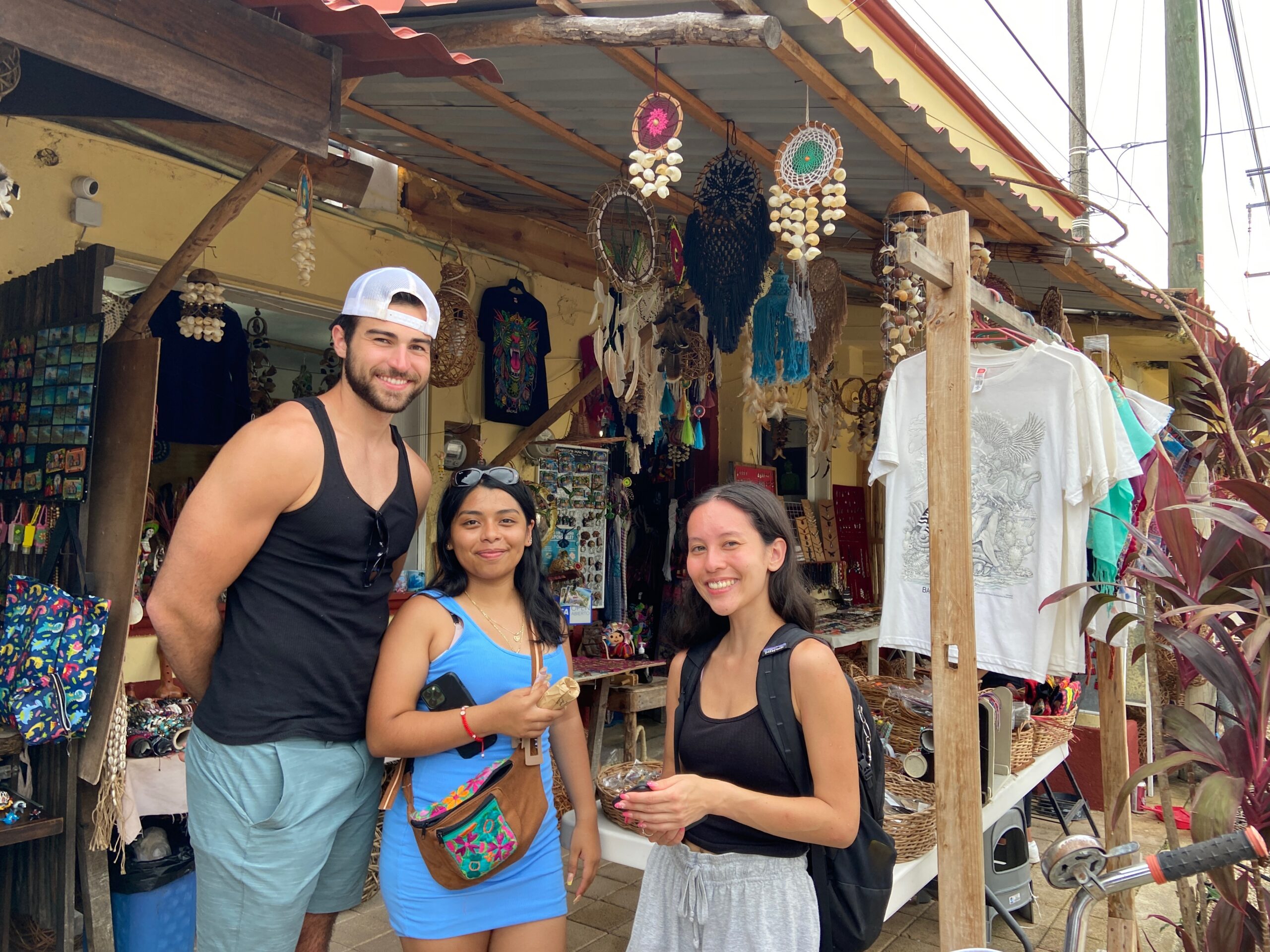
The Mayan and the Yucatecan in the Yucatan Peninsula
For the journal associated with my second week in Mérida, I pondered over the relationship between Mayan people and the general peninsula. I felt as if there was constant acknowledgement of Mayan culture, architecture, language, and influence, but not of actual Mayan people. To me, there seemed to be a sort of superficiality with the whole experience, but I felt that two weeks wasn’t enough for me to come to any conclusions yet. This week, two events further solidified this previous observation, and posed personal critical questions for me. The first one was a talk given by a Mayan businessman given during “La Semana de la Antropología” at la Universidad Autónoma de Yucatán to commemorate the faculty’s anniversary. Pablo is the owner of a restaurant that caters to tourists, as well as a shop that sells artesanal products in Mérida. He discussed how as a Mayan Yucatecan, he is still treated by tourists as not only less, but as if he owed something to them. He shared how he sees his employees tolerating belittling behavior just because there is an internalized idea that tourists are “good” because they bring money (dollars) to the economy. He also talked about the idea of the “white savior complex,” the idea that white people believe themselves as liberators and rescuers, and how dangerous it can be for the Mayan community and culture, who is in some way exploited in this process. However, this businessman has learned how to use his culture to uplift and empower himself in the industry and abroad. Nonetheless, I can understand how this journey can be mentally and emotionally draining for him.
The second event was a personal/academic one. For my IFSA Community and Culture class, we had a reading about the cultural representations of the Mayan and the Yucatecan in the Yucatan Peninsula. I believe it was a very useful reading to be able to analyze what we consume in Merida, and throughout the Yucatan, as exchange students. Institutions know that when we are looking for study abroad programs, we take into account the conventional culture that is sold to tourists and how living in a certain place will give us a more ”intimate and closer” vision of reality. Everything is hyper-romanticized and to a point “infantiled” in the sense that Latin American and African countries are described as distant from “American” modernity (this is said less of European countries). For example, when I applied to the IFSA Mérida program, the description of the program strongly emphasized the public health concentration because only in Yucatán could I find the “wisdom” of the Mayans, that is, their traditional medicine. However, this is used as a commercial ploy because traditional medicine is not widely accepted in the United States, so the experience/knowledge will only serve to enlighten oneself about natural medicine and for research purposes. It can be a process of extracting knowledge to produce our own conclusions. I am not saying that the students who do study abroad have bad intentions or do not value what we are exposed to, because I identify myself as a student who wants to learn and critically analyze my experience in Merida, but I admit that we can fall into cycles of focusing on what the experience can provide us, in terms of wisdom and learning, instead of analyzing what we are consuming and how our actions as tourists can be harmful. I am now even more encouraged to be mindful everytime a tourist activity heavily emphasizes ”the Mayan” especially if they are not Mayan themselves.
